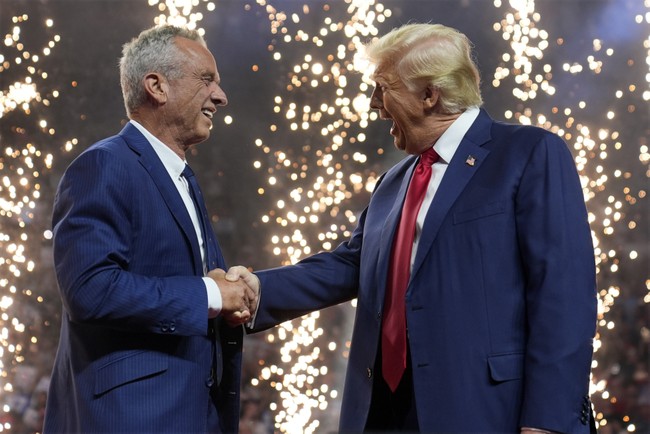An attorney representing Robert F. Kennedy Jr. has criticized a recent New York Times report, which claimed that Trump’s nominee for Health and Human Services (HHS) Secretary sought to revoke FDA approval for the polio vaccine.
“Contrary to hysterical media reports that the petition sought to make sure no polio vaccines would be available, the scope of the petition was quite narrow,” Aaron Siri, RFK Jr.’s legal adviser and a partner at Siri & Glimstad LLP, told Fox News Digital. “It simply asked the FDA to require a proper trial for licensure for children of a novel polio vaccine.”
The New York Times reported last week that Siri was “waging a war” against vaccines, a claim Siri called false and misleading. “The article falsely claimed the petition sought to eliminate the polio vaccine, as if there is only one, and that our client sought to leave Americans without the choice to get vaccinated for polio,” Siri explained.
“In reality, the petition sought to ensure the safety of one of the six existing licensed polio vaccines that we inject into our children three times before their first birthday,” he clarified.
The controversy emerged as RFK Jr. met with senators this week to secure support for his HHS nomination. Siri noted that the petition in question, filed in 2022 on behalf of the nonprofit Informed Consent Action Network (ICAN), urged the FDA to suspend use of the IPOL polio vaccine for infants and children until adequate testing was conducted. Siri pointed out that the IPOL vaccine, which was licensed in 1990 by Sanofi, was approved based on safety data covering just three days after injection.
“This is not the traditional polio vaccine developed by Jonas Salk or Albert Sabin that most Americans are familiar with,” Siri said. “It uses a different technology in which the virus is grown on genetically modified monkey kidney cells that replicate indefinitely, similar to cancer cells. Trace amounts of these cells remain in each vaccine dose.”
In addition to the IPOL petition, ICAN filed another in 2021 addressing concerns over aluminum adjuvants in 13 childhood vaccines. The petition cited a peer-reviewed study showing discrepancies between the aluminum levels listed on FDA-approved labels and the actual content in the vaccines. It urged the FDA to verify or publicly release data on the aluminum content and halt distribution until discrepancies were resolved.
“Currently, political labeling — whether ‘pro-vaccine’ or ‘anti-vaccine’ — is inadequate to address the realities of medical ethics, regulatory capture, and the influence of corporate money on health policy,” Siri said. “We must be able to raise valid questions about vaccine safety, efficacy, and policy without fear of being smeared with epithets and outrage.”
Both Trump and RFK Jr. have responded to the media’s portrayal of Siri’s petition. In public statements, they reaffirmed their support for the polio vaccine while advocating for rigorous safety protocols. “Mr. Kennedy believes the polio vaccine should be available to the public and thoroughly and properly studied,” said Katie Miller, a spokesperson for RFK Jr.’s transition team.
At a press conference Monday, Trump echoed the sentiment, saying, “Everything should be looked at,” and adding that he’s a “big believer in the polio vaccine.”
 Telegram is where we really talk. Don't miss out!
Telegram is where we really talk. Don't miss out!







